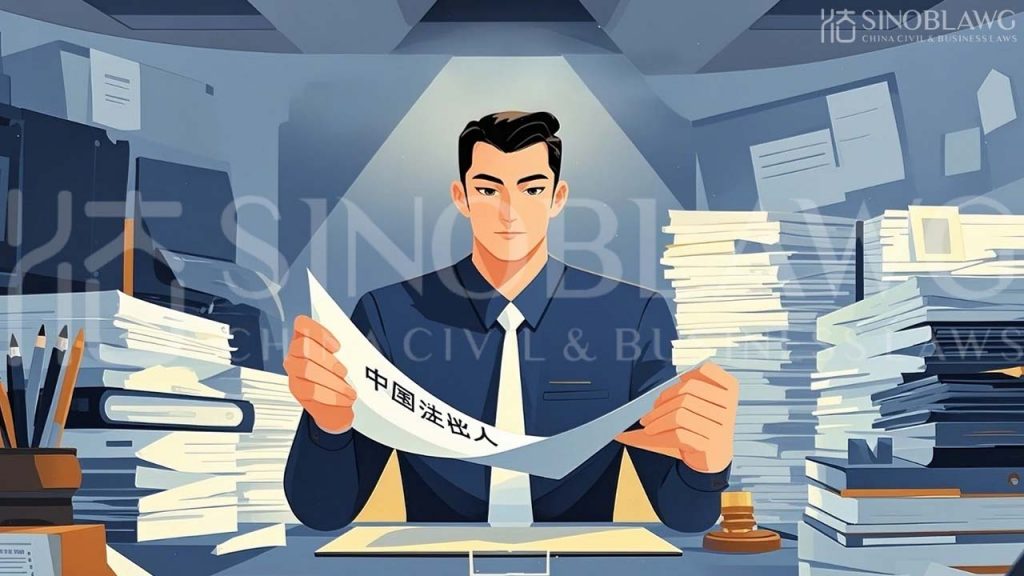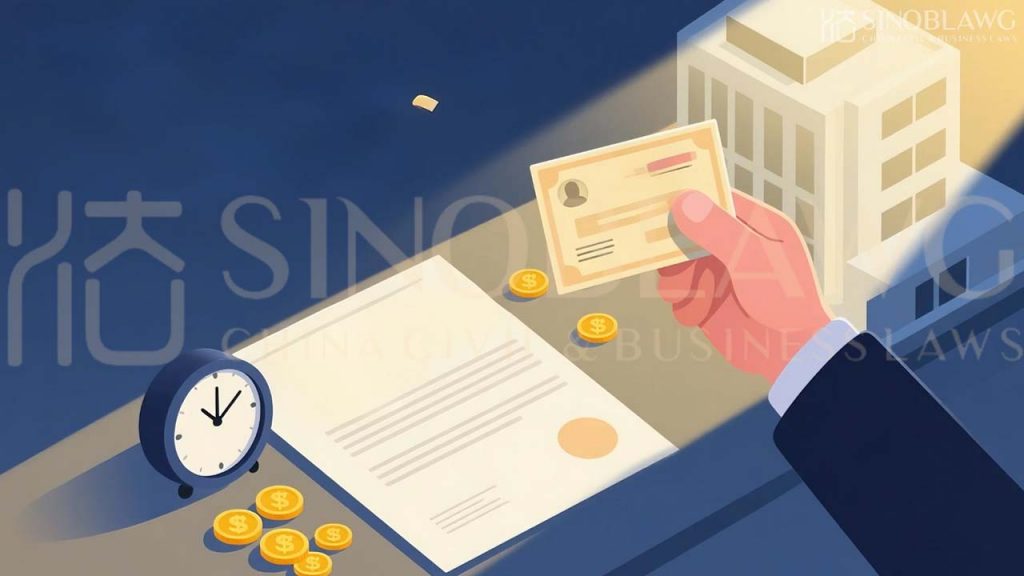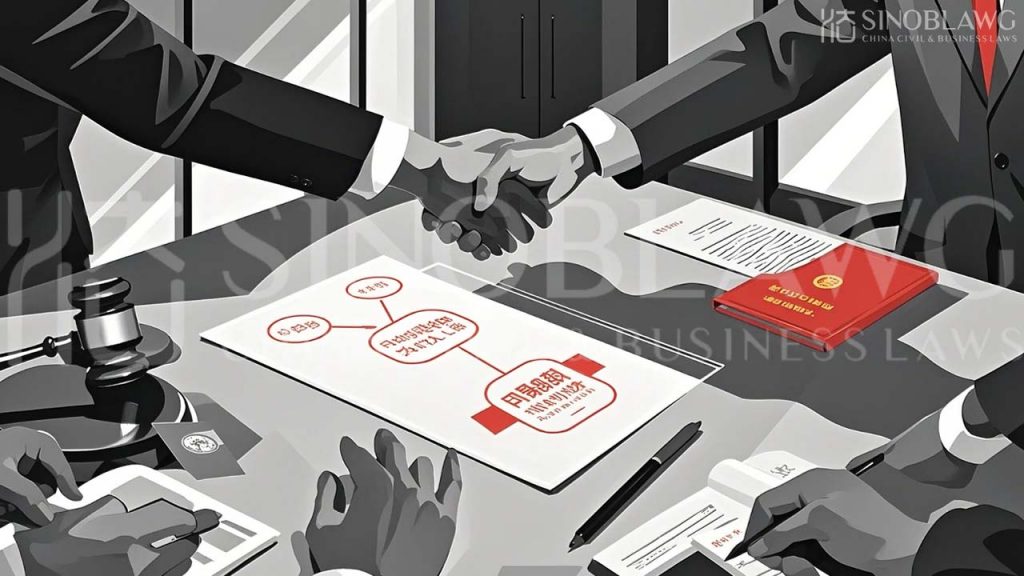Here is the question:
Dear Jason,
Today I was doing some research on the legal representative of WFOE’s. During my research I came across the following article:
https://www.sinoblawg.com/?p=1394
In your article you mention the following:
When this legal representative resigned by submitting his resignation letter to board of the directors of the WFOE, upon receipt of the this resignation letter, from that moment, within the company, the resignation shall take effect. Accordingly, the the legal representative shall refrain from acting as legal representative of the WFOE to the outside, even though he is still registered with company registry as the legal representative. In other words, within the company, he or she cannot hold out himself or herself to be the legal representative despite of the registration. He or she shall remind the clients and customers of the company that he has resigned and ceased to be the legal representative.
What is the legal ground for this? Where in the law I can find this kind of arrangements? Or does this need to be arranged in the Articles of Association?
The basic question I want to answered is whether a legal representative can resign if the board does not agree? And to whom will the responsibilities be transferred?
I thank you in advance for answering my email.
Kind regards,
xxxx name of the reader
Here is my answer:
Dear XXXX:
Those lines are my personal understanding and interpretation of the relevant laws in regard of legal representative.
As China Company Law provides that only the chairman of the board and the general manager can serve as legal representative of a company. In other words, being chairman or general manager is the prerequisite condition for being the legal representative for the company.
Your question is a good one. Again the following is my personal understanding as China legislature has unfortunately failed to provide detailed rules in this important regard of economic life.
- In the case that the chairman of the board serves as legal representative, for the board chairman, its appointment and dismissal are made in accordance with the articles of association of the company. Indeed, the China Company Law simply say the rules for creation of board chairman shall be stipulated in the AOA.
While shareholder meeting has the power to elect board members, the chairman is not elected by the shareholders meeting. At least, it is a not a statutory power vested in the shareholders meeting. Of course, it is also possible that the shareholders meeting is granted the power to elect the board chairman provided that it is so stipulated in the AOA of the company.
So whether the chairman resignation shall be subject to the approval of the board depends on the provisions in the AOA. It is also possible that AOA provides that the chairman shall be appointed by the majority shareholder. Or it is also possible that the chairman shall be elected by the board members. In practice to save the hassle of calling on shareholders meeting, it is not common to confer this power in the shareholders meeting. In a company with an absolute majority shareholder, it won’t surprise me to find that the chairman is solely appointed by this shareholder.
In this case, the chairman resignation may or may not be subject to board decision.
- In the case that the general manager serves as the legal representative, under Chinese Company law, the general manager is hired and fired by the board of directors in the name of the company. Legally speaking, the general manager is still an employee (though to a great extent, it differs from ordinary employees in many senses) and as such, he is entitled to terminate its employment by giving a one-month prior notice to the company (to the board in practice) in accordance with China Labor Contract Law.
Based on this understanding, the resignation does not really require the consent of the board.
- As for the transfer of responsibilities, there is no such an issue at all. As said in my post, legal representative is just a corporate will expression instrumentality responsible for representing the company towards the world, in other words, any third party. When the legal representative resigns or is removed, the company does not really run into any serious trouble as the company can use its chop to sign contracts with third party.
As a matter of law, any person who is not registered as legal representative cannot hold himself out to be the legal representative and his or her representation does not take effect.
It is the company’s duty to appoint its new legal representative in due course and get the new rep registered with local industry and commerce bureau in China. However, if the company is deadlocked without the ability to deliver any valid board resolution or shareholder decision, then it is a big disaster. The company may well end up in dissolution proceeding at court.
It is an interesting topic and I am happy to assist you in understanding this issue. Let me know if you have further questions.
Regards
Jason








In cases where the companies refuse to remove the original legal representative registration off the company registry, the outgoing legal representative may find themselves in a very odd situation.
The China company law does not provide any solution for this deilemma. Without appointing the new legal representative in accordance with corporate articles of association, the company registry authority can do nothing about it as it has no power to appoint a legal representative for any company. IN other words, this is an internal power of the company which is outside of the review of any administrative authority and the judiciary authority, I mean the court.
So here comes the question: in the said dilemma, can the outgoing legal representative sue the company to deregister its name off the company registry? The answer is actually not really strait forward. After precedent case search showed that different courts may have different ideas.
It is apprently wrong for the company to hold out someone as its legal representaifve when the said person no longer serves as chairman of the board or the general manager, it is indeed a misrepresentation to the outside world. It is also obvious that the China company law will never tolerate such situations to exist in practice.
A recent case in Shanghai supported the outgoing legal representative’s request to the company to remove his name off the company registry based on the reasoning mentioned above.
However, it remains a mystery as to how the court will act if the company refuses to follow the court judgment. Yes, Court may impose penalty on the company, but as said above, without the new legal representative appointed, the company registry may not remove the name of the outgoing legal representative.
In case where the company has failed into dormancy or is simply left unattended, then it is even harder for the court to support the plaintiff’s request to update the company’s registration.
So for those legal representatives who are caught in such a plight, you should actively seek to sue the company to deregister the old legal rep though there may be uncertainty about the ligation outcome, but it is defensively worth trying in light of the possible dire consequences for staying as legal representative while you have no control over the corporate activities.